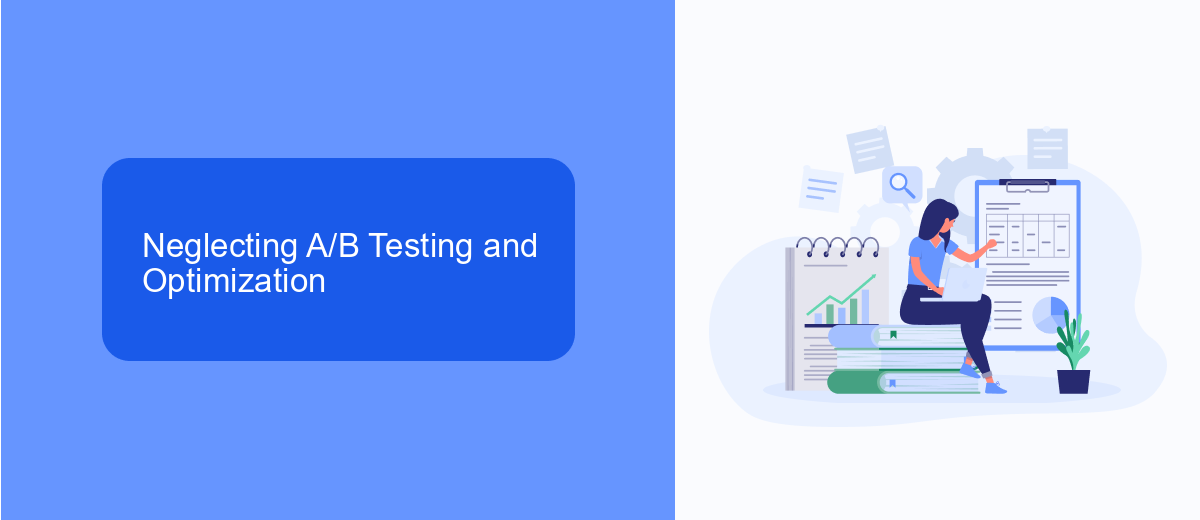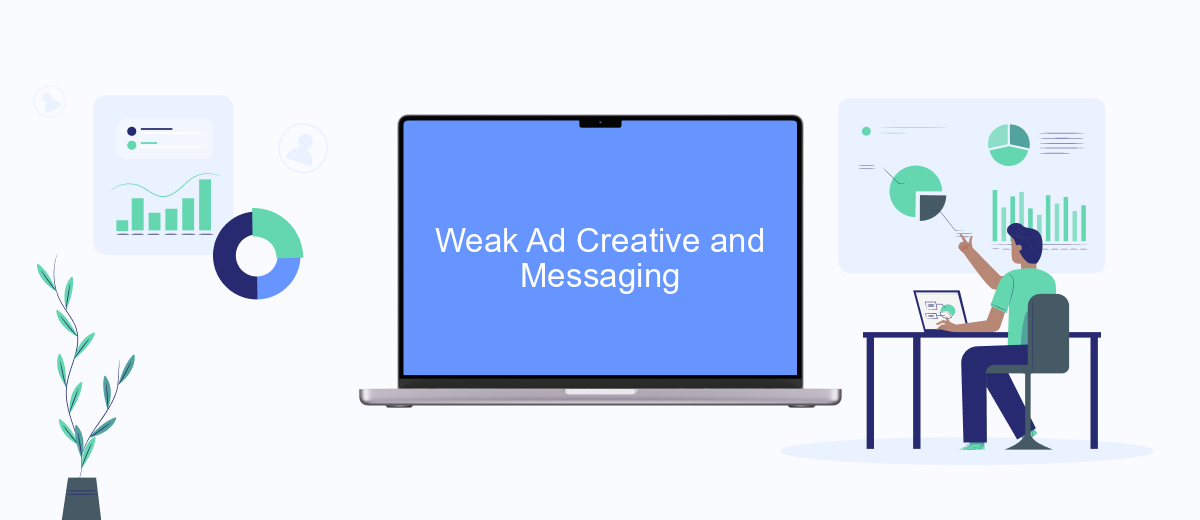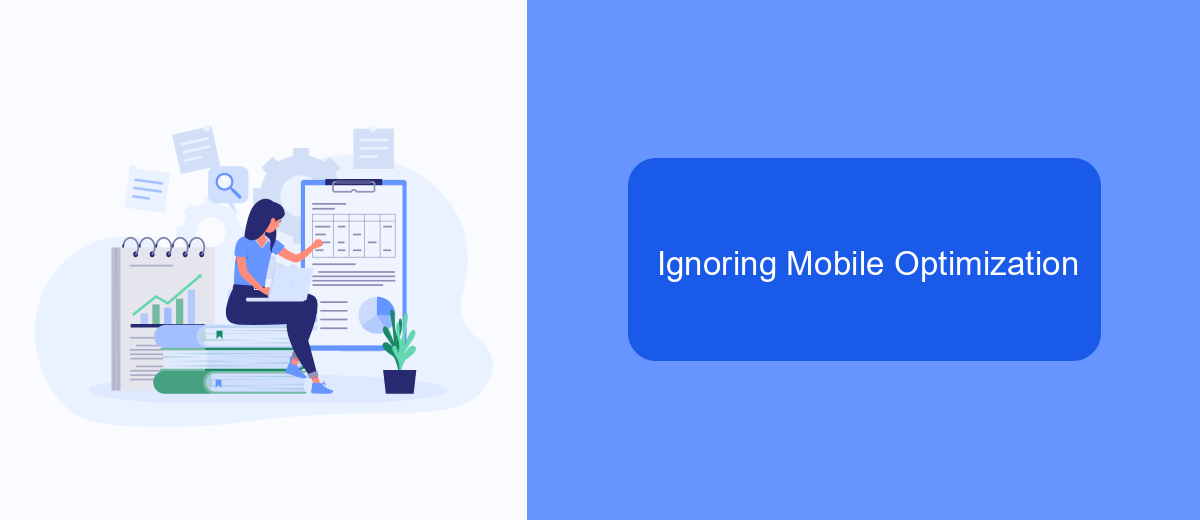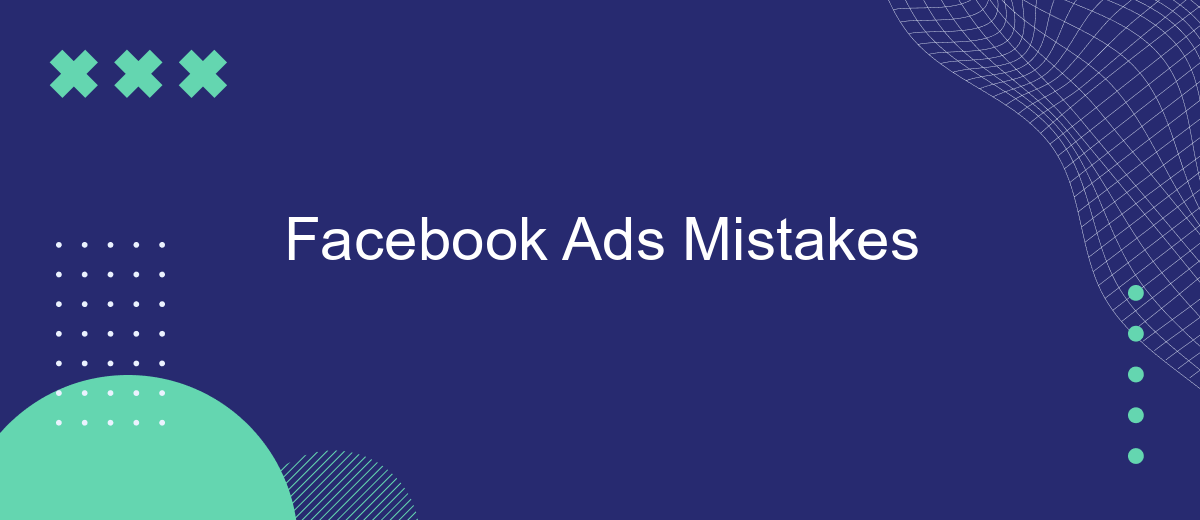Creating successful Facebook ad campaigns can be a game-changer for businesses, but even seasoned marketers can stumble into common pitfalls. Understanding these mistakes is crucial for maximizing your return on investment and reaching your target audience effectively. In this article, we'll explore the most frequent Facebook Ads mistakes and provide actionable insights to help you refine your strategy and achieve better results.
Poor Targeting and Audience Definition
Poor targeting and audience definition are common pitfalls in Facebook advertising that can significantly hinder campaign success. When advertisers fail to accurately define their target audience, they risk wasting ad spend on users who are unlikely to engage or convert. This not only reduces the return on investment but also skews performance metrics, making it challenging to optimize future campaigns effectively.
- Overly broad audience selection can dilute the message and reduce relevance.
- Ignoring demographic insights may lead to missed opportunities.
- Failing to use custom audiences can overlook existing customer segments.
- Neglecting to test different audience segments can hinder optimization.
- Not leveraging lookalike audiences can limit reach to potential new customers.
To improve targeting, advertisers should invest time in researching and understanding their ideal customer profiles. Utilizing Facebook's robust targeting tools, such as detailed demographics, interests, and behaviors, can help create more relevant and personalized ads. Regularly analyzing campaign data and adjusting audience parameters ensures that ads reach the most receptive users, maximizing engagement and conversion rates.
Neglecting A/B Testing and Optimization

One of the most common pitfalls in Facebook advertising is overlooking the importance of A/B testing and optimization. Advertisers often assume that their initial ad setup will yield the best results, but this approach can lead to missed opportunities for improvement. A/B testing allows advertisers to compare different versions of their ads to determine which performs better. By systematically testing variables such as headlines, images, and call-to-action buttons, marketers can gain valuable insights into what resonates with their audience. Without this data-driven approach, campaigns may suffer from suboptimal performance, leading to wasted budget and diminished returns on investment.
Optimization goes hand in hand with A/B testing and is crucial for maximizing the efficiency of Facebook ads. Once the best-performing elements are identified through testing, continuous optimization ensures that ads remain relevant and effective over time. This process might involve refining audience targeting, adjusting bids, or even integrating automation tools like SaveMyLeads to streamline workflow and enhance data collection. By neglecting these critical steps, advertisers risk stagnating their campaigns, ultimately hindering their ability to achieve desired outcomes and meet business objectives.
Weak Ad Creative and Messaging

One of the most common pitfalls in Facebook advertising is weak ad creative and messaging. This can significantly undermine the effectiveness of your campaigns, leading to poor engagement and wasted ad spend. To capture your audience's attention and drive action, it's crucial to craft compelling visuals and clear, persuasive messages that resonate with your target demographic.
- Unclear Value Proposition: Ensure your ad clearly communicates the unique benefits of your product or service.
- Poor Visuals: Use high-quality images or videos that are relevant and eye-catching to draw users in.
- Overcomplicated Messaging: Keep your copy concise and straightforward to avoid confusing potential customers.
- Lack of Call to Action: Always include a clear and compelling call to action to guide users on what to do next.
By addressing these common issues, you can enhance the effectiveness of your Facebook ads, ensuring that your creative and messaging are aligned with your campaign goals. Remember, the key to successful advertising lies in understanding your audience and delivering a message that speaks directly to their needs and desires.
Ignoring Mobile Optimization

In today's digital landscape, overlooking mobile optimization in your Facebook Ads strategy can significantly hinder your campaign's effectiveness. With a substantial portion of users accessing Facebook via mobile devices, ensuring that your ads are mobile-friendly is crucial for reaching your target audience effectively. Ignoring this aspect can lead to poor user experience, reduced engagement, and ultimately, lower conversion rates.
When ads are not optimized for mobile, they may appear distorted, load slowly, or be difficult to interact with on smaller screens. This can result in users quickly scrolling past your ad, missing your message entirely. To avoid these pitfalls, it's essential to prioritize mobile optimization in every aspect of your ad design and deployment.
- Ensure your ad visuals and text are clear and legible on smaller screens.
- Optimize loading times to prevent users from abandoning your ad.
- Test your ads on various mobile devices to ensure compatibility and functionality.
By paying attention to mobile optimization, you can enhance user experience, increase engagement, and improve the overall success of your Facebook Ads campaigns. Remember, a seamless mobile experience can be a decisive factor in capturing and retaining your audience's attention.
Improper Budget Allocation and Bidding Strategies
One common mistake in Facebook advertising is improper budget allocation, which can significantly impact the effectiveness of your campaigns. Allocating too much budget to underperforming ads or not enough to high-performing ones can lead to wasted resources and missed opportunities. It's crucial to regularly analyze the performance of your ads and adjust your budget accordingly. Use Facebook's ad manager tools to track metrics like cost per click (CPC), click-through rate (CTR), and conversion rates to make informed decisions about where to allocate your budget for maximum return on investment.
Another critical aspect is choosing the right bidding strategy. An incorrect bidding approach can either overspend your budget or limit your ad's reach. Facebook offers various bidding strategies, such as cost cap, bid cap, and target cost, each suited for different campaign goals. It's essential to understand your campaign objectives and select a bidding strategy that aligns with them. Additionally, integrating tools like SaveMyLeads can streamline the process by automating data transfers and ensuring that your budget and bidding strategies are informed by the most accurate and up-to-date information.
FAQ
What are common mistakes to avoid when setting up Facebook Ads?
How can I improve the performance of my Facebook Ads?
Why is my Facebook Ad not converting?
How can I automate my Facebook Ads process?
What should I do if my Facebook Ads account gets disabled?
You probably know that the speed of leads processing directly affects the conversion and customer loyalty. Do you want to receive real-time information about new orders from Facebook and Instagram in order to respond to them as quickly as possible? Use the SaveMyLeads online connector. Link your Facebook advertising account to the messenger so that employees receive notifications about new leads. Create an integration with the SMS service so that a welcome message is sent to each new customer. Adding leads to a CRM system, contacts to mailing lists, tasks to project management programs – all this and much more can be automated using SaveMyLeads. Set up integrations, get rid of routine operations and focus on the really important tasks.
